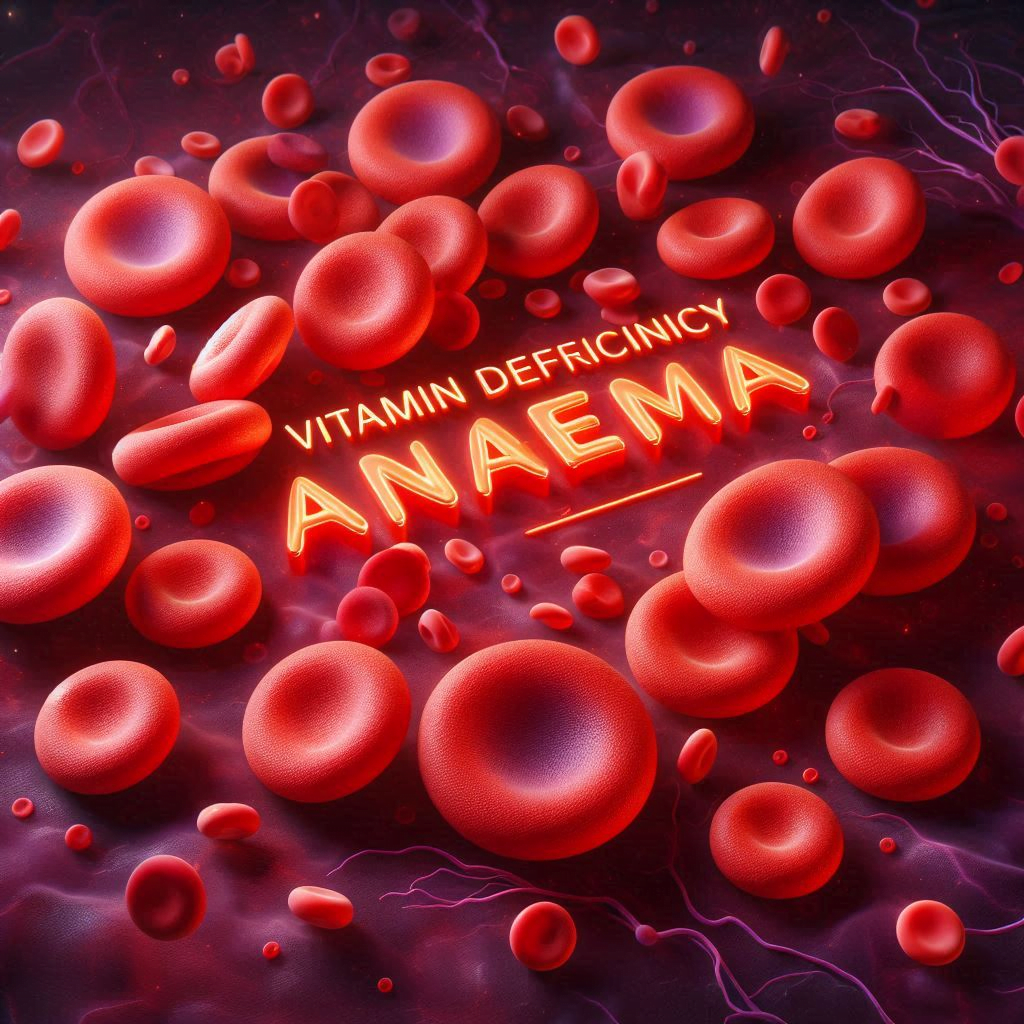Diagnosing and Treating Vitamin Deficiency Anemias
Diagnostic Tests
To diagnose vitamin deficiency anemias, medical professionals may conduct blood tests to assess:
- Red Blood Cell Count and Morphology: Evaluating the number and appearance of red blood cells.
- Vitamin Levels: Measuring the levels of vitamin B-12 and folate in the blood.
- Antibodies to Intrinsic Factor: Detecting antibodies that can indicate pernicious anemia.
Treatment Modalities
Treatment for vitamin deficiency anemia involves replenishing the deficient vitamin. The approach varies depending on the specific vitamin lacking:
Vitamin B-12 Supplementation:
- Injections: Administered into a muscle or under the skin.
- Oral Pills: Taken by mouth.
- Sublingual Forms: Liquids or tablets designed to dissolve under the tongue.
- Nasal Applications: Gels or sprays for nasal use.
For pernicious anemia, vitamin B-12 injections are often required and may continue throughout the patient’s lifetime.
Folate Supplementation:
- Oral Pills: The primary method for increasing folate levels.
- Intravenous Delivery: For certain cases, folate can be administered directly into the bloodstream via an IV.
By following these treatment plans, patients with vitamin deficiency anemias can manage their condition and improve their overall health.
Preparing for Your Doctor’s Appointment: Vitamin Deficiency Anemia
Steps to Take Before Your Appointment
To ensure a productive discussion with your doctor, consider the following preparations:
- Document Your Symptoms: Note all symptoms you’re experiencing, even if they seem unrelated to your current health concerns.
- Record Personal Changes: Write down any significant personal events or stressors that have occurred recently.
- List Medications and Supplements: Make a comprehensive list of all medications, vitamins, and supplements you are taking.
- Prepare Questions: Think of questions to ask your doctor to better understand your condition and its treatment.
Questions to Consider Asking Your Doctor
When meeting with your doctor, you might want to ask:
- What is the most likely cause of my symptoms?
- Could there be other factors contributing to my symptoms?
- Is this condition expected to be temporary or chronic?
- What treatment options do you recommend?
- Are there alternative treatments available?
- How should I manage this condition alongside my other health issues?
- Should I make any dietary changes to improve my condition?
- Can you provide any educational materials or recommend informative websites?
Anticipating Your Doctor’s Inquiries
Your doctor may ask you questions such as:
- When did you first notice your symptoms?
- How intense are your symptoms?
- Have you found anything that alleviates your symptoms?
- Is there anything that seems to exacerbate your symptoms?
- Do you follow a vegetarian diet?
- What is your daily intake of fruits and vegetables?
- Do you consume alcohol, and if so, how frequently and how much?
- Do you smoke?
Being prepared to answer these questions can help your doctor diagnose and treat your condition more effectively.
| Category | Subcategory | Details |
|---|---|---|
| Overview | Definition | A condition caused by insufficient levels of vitamin B-12 and folate, leading to abnormal red blood cells and reduced oxygen transport. |
| Causes | Can result from inadequate dietary intake or poor absorption of vitamins B-12 and folate. | |
| Symptoms | Early Signs | Develops slowly, with subtle symptoms like fatigue, shortness of breath, and dizziness. |
| Common Symptoms | Includes pale/yellowish skin, irregular heartbeats, weight loss, numbness, muscle weakness, personality changes, unsteady movements, and mental confusion. | |
| Causes | Vitamin B-12 Deficiencies | Caused by dietary habits, pernicious anemia, gastric surgeries, and intestinal problems. |
| Folate Deficiencies | Occurs due to inadequate intake, absorption problems, increased demand during pregnancy, or certain medications. | |
| Risk Factors | Autoimmune diseases, gastrointestinal surgeries, older age, and chronic alcohol use. | |
| Complications | Health Risks | Pregnancy complications, nervous system disorders, and increased risk of gastric cancer. |
| Prevention | Diet | A healthy diet including foods rich in vitamin B-12 and folate. |
| Daily Requirements | Vitamin B-12: 2.4 \text{ mcg}2.4 mcg ; Folate:400 \text{ mcg}400 mcg . | |
| Diagnosis | Tests | Blood tests for red blood cell count, vitamin levels, and antibodies to intrinsic factor. |
| Treatment | Vitamin B-12 | Via injections, pills, sublingual liquids/tablets, or nasal gels/sprays. |
| Folate | Usually through oral pills or intravenously for severe cases. | |
| Appointment Preparation | Before Appointment | Document symptoms, personal changes, list of medications, and prepare questions. |
| Questions to Ask | About causes, symptoms, treatments, dietary changes, and managing other health conditions. | |
| Doctor’s Questions | Regarding symptom onset, severity, diet, alcohol consumption, and smoking habits. |


